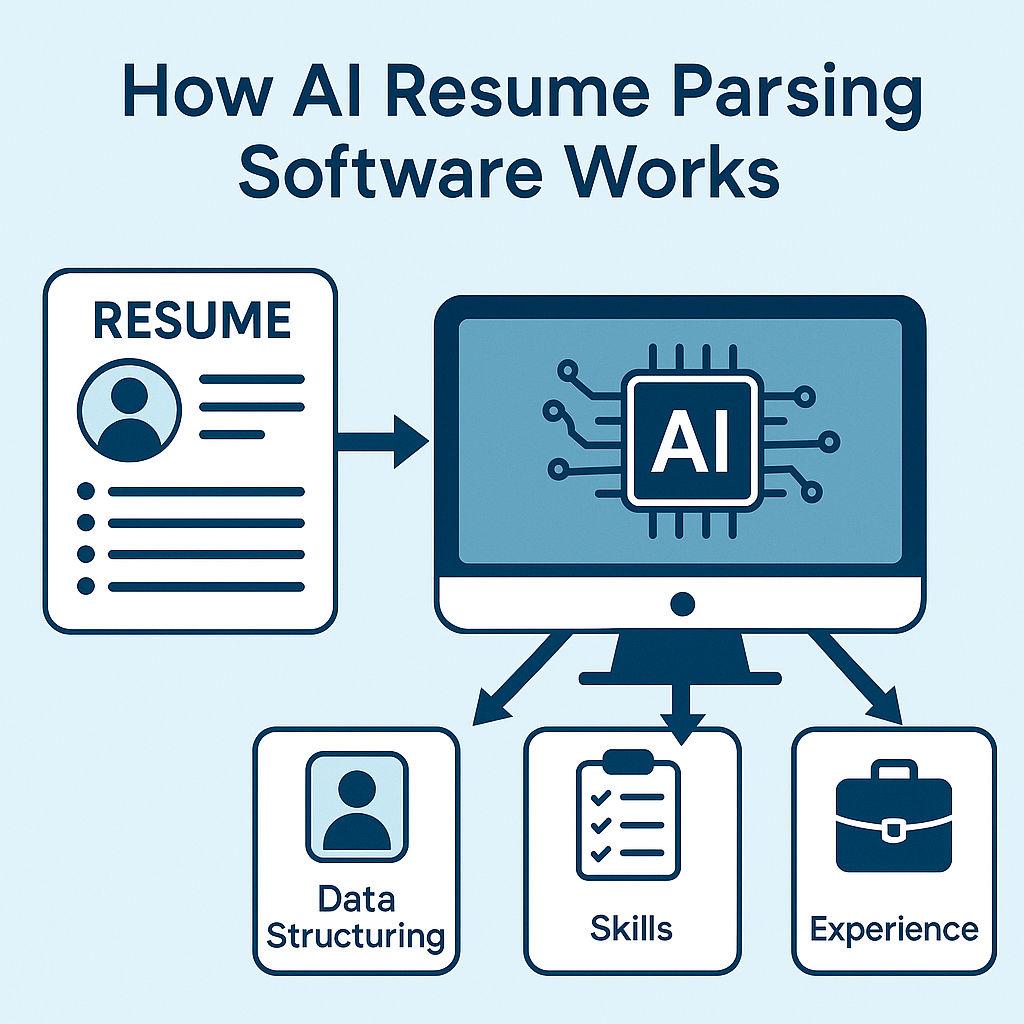
In today’s fast-paced recruitment landscape, efficiency, accuracy, and scalability are crucial. Recruiters and talent acquisition teams are increasingly turning to automation tools like resume parsers to streamline their workflows. But how does automated resume parsing compare to traditional manual resume screening? This blog takes a deep dive into the pros, cons, and data-driven results behind each approach—ultimately helping you decide which method aligns best with your hiring goals.
What Is a Resume Parser?
A resume parser is an AI-driven tool designed to extract relevant data from resumes—such as contact details, skills, work experience, and education—and structure it in a format that can be used by Applicant Tracking Systems (ATS). Modern solutions like RChilli leverage natural language processing (NLP) and machine learning to enhance parsing accuracy, even for unstructured and multilingual resumes.
Manual Resume Screening: Time-Tested but Time-Consuming
Manual resume screening involves human recruiters individually reviewing resumes to determine candidate fit. While this method allows for nuanced judgment and soft skill assessment, it is also prone to:
-
Human error and unconscious bias
-
Inconsistency in evaluation
-
Significantly longer time-to-hire
-
Difficulty scaling for high-volume hiring campaigns
A study by Ideal found that recruiters spend an average of 23 hours screening resumes for a single hire.
Automated Resume Screening: Data-Driven and Scalable
Automated resume screening tools use AI and NLP to evaluate resumes in seconds. Here’s why they’re gaining traction:
1. Speed and Efficiency
An AI-powered resume screening tool like RChilli can parse thousands of resumes in minutes, dramatically reducing time-to-fill.
2. Accuracy and Standardization
Modern resume parsing software ensures consistent evaluation criteria, minimizing bias and maximizing fairness.
3. Scalability for High-Volume Hiring
Automated systems shine in high-volume recruiting scenarios, such as seasonal hiring or large-scale tech recruitment.
4. Data-Driven Hiring Decisions
By extracting structured data, automated screeners enable advanced analytics, allowing recruiters to make informed, data-driven hiring decisions.
Key Comparison: Manual vs. AI Resume Screening
| Feature | Manual Screening | AI Resume Screening |
|---|---|---|
| Time per resume | 3-7 minutes | <1 second |
| Bias risk | High | Lower (algorithm-dependent) |
| Cost-efficiency | Low | High |
| Volume handling | Limited | Unlimited |
| Integration with ATS/CRM | No | Yes |
| Customization & keyword matching | Low | High (NLP-driven) |
Addressing the AI Bias Myth
One common concern with automated systems is bias. While no algorithm is perfect, tools like RChilli’s AI resume parser are designed to reduce unconscious bias by focusing on objective criteria such as skills, qualifications, and experience—not gender, age, or ethnicity.
Plus, advanced configurations allow hiring teams to tweak the parsing model to align with diversity hiring goals.
When to Use Resume Parsers Over Manual Screening
-
High-volume hiring (e.g., call centers, seasonal roles)
-
Global recruitment (support for multilingual resumes)
-
Standardized roles (roles with specific, measurable skill requirements)
-
Data-driven recruiting environments
For more complex, executive, or creative roles, manual screening may still add value. However, even in those cases, resume parsers can pre-screen candidates to save time.
Real-World Results: The RChilli Advantage
Organizations using RChilli have reported:
-
85% reduction in resume screening time
-
70% improvement in candidate matching accuracy
-
Seamless ATS and CRM integrations
-
Support for over 40 data fields and 140+ languages
These benefits make it a standout solution for companies looking to automate, scale, and modernize their talent acquisition workflows.
Final Thoughts: The Future Is Automated, But Balanced
The debate between resume parser vs. manual screening isn’t about choosing one over the other—it’s about using the right tool for the right task. Automation with solutions like RChilli frees up recruiters to focus on strategic functions like engagement, interviews, and culture fit.
In an era where every minute counts, investing in AI resume screening tools is no longer optional—it’s essential.
Ready to optimize your recruitment with AI? Start with RChilli today.